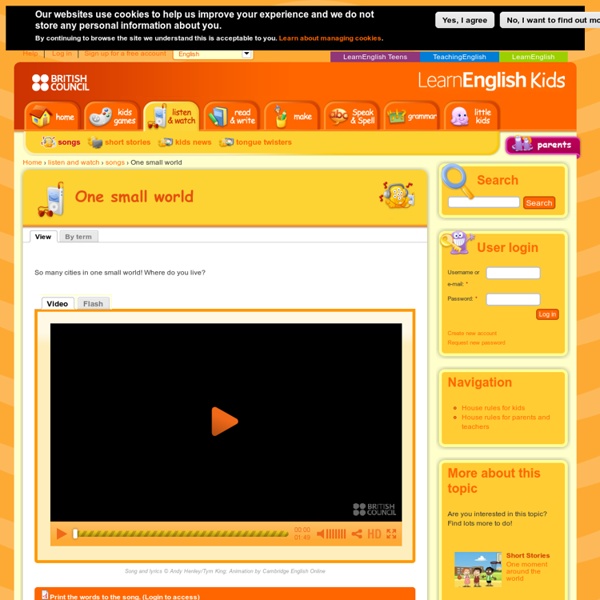



ICL Online Resources Today’s post is by Dr. Milton Bennett and has been reposted from the IDRInstitute blog with his permission. Visit www.idrinstitute.org for more information on Dr. Milton Bennett’s current projects. Following Dr. With all due respect to theoreticians who continue to use the iceberg metaphor to describe culture, I think it’s time to retire the image altogether. Most people with any background in intercultural communication theory agree that culture is not a “thing”; it is the process whereby groups of people coordinate meaning and action, yielding both institutional artifacts and patterns of behavior. Comparing culture to an iceberg floating in the sea implies that culture is an actual thing. The metaphor does not in any way imply that culture is a process of coordinating meaning and action – rather, it implies that culture is an entity with mysterious unknown qualities. This situation is a great example of paradigmatic confusion. An AFS perspective on the subject: Nevertheless, as Dr.
Seven Habits of Highly Effective Intercultural Communicators | Sherwood Fleming's Intercultural Communication Insights In an increasingly interconnected world, intercultural communication skills are more important than ever. Many of us are finding ourselves conducting business with people from a variety of cultures. Such contexts require the creation of new communication practices that go beyond simply the mastery of whatever language we are using. I’ve identified seven communication habits of highly effective intercultural communicators, drawn from my training and consulting work with clients operating within intercultural business environments. 1. Taking risks of any kind is uncomfortable for many people. 2. They do not keep a who-should-adapt-to-who-first score card. 3. By listening with intercultural ears I mean that effective intercultural communicators have an ability to listen impartially. By seeing with intercultural eyes I mean that despite received wisdom on this point, they also ignore body language when dealing with someone from another culture. 4. 5. 6. 7. How Do You Measure Up?
Mumbai "Mumbai City" redirects here. For the football club, see Mumbai City FC. Mumbai (/mʊmˈbaɪ/; also known as Bombay) is the capital city of the Indian state of Maharashtra. It is the most populous city in India, most populous metropolitan area in India, and the eighth most populous city in the world, with an estimated city population of 18.4 million and metropolitan area population of 20.7 million as of 2011.[6] Along with the urban areas, including the cities of Navi Mumbai, Thane, Bhiwandi, Kalyan, it is one of the most populous urban regions in the world.[7] Mumbai lies on the west coast of India and has a deep natural harbour. In 2009, Mumbai was named an alpha world city.[8] It is also the wealthiest city in India,[9] and has the highest GDP of any city in South, West or Central Asia.[citation needed] Etymology The temple of local Hindu goddess Mumbadevi, from whom the city of Mumbai derives its name History Early history Portuguese and British rule
VIII SEMINARIO NAZIONALE DI EDUCAZIONE INTERCULTURALE “Verso un nuovo umanesimo attraverso la revisione dei curricoli scolastici europei” è questo il titolo dell’edizione 2014 del seminario di Educazione Interculturale organizzato dalla Comunità Volontari per il Mondo (CVM) e svoltosi a Senigallia dal 5 al 7 settembre. L’obiettivo? ‘diffondere la consapevolezza che la nuova cittadinanza europea e mondiale va costruita a scuola, attraverso un’assunzione di valori connessi all’etica dell’interdipendenza planetaria’. Hanno partecipato quasi 200 persone, provenienti da tutta Italia e in alcuni casi anche dall’Europa, alle tre giornate di incontro di inizio settembre a Senigallia. Lo scopo principale del convegno è stato riflettere sulle modalità per avviare i giovani verso un Nuovo Umanesimo Cosmopolita, promuovendo la scuola come primo luogo di formazione.
Yes No Game lennon Help page | Oxford Owl This page answers the most common queries from our users and provides details of system requirements. If you can't find the answer that you're looking for, please contact us. Joining Oxford Owl Q: Why join Oxford Owl? A: Join Oxford Owl for School for free if you are a teacher to access teaching, learning and assessment resources, professional development videos, and our eBook library and class login. To access more content you can subscribe to one of our Primary subscriptions. Join Oxford Owl for Home for free if you are a parent in order to access the eBook library. When you register for free, you select whether you are a parent or a teacher and this will give you access to the resources right for you. Q: How do I join Oxford Owl? A: Simply click the Join us button in the top right corner of the screen, fill out your details and click the confirm link in the email you receive. Q: I haven’t received my confirmation email. The email may be in your "Junk", "Spam" or "Trash" email folders.